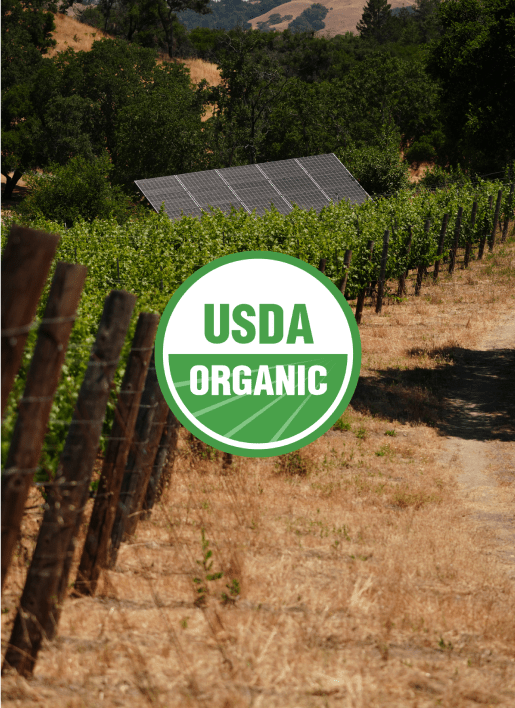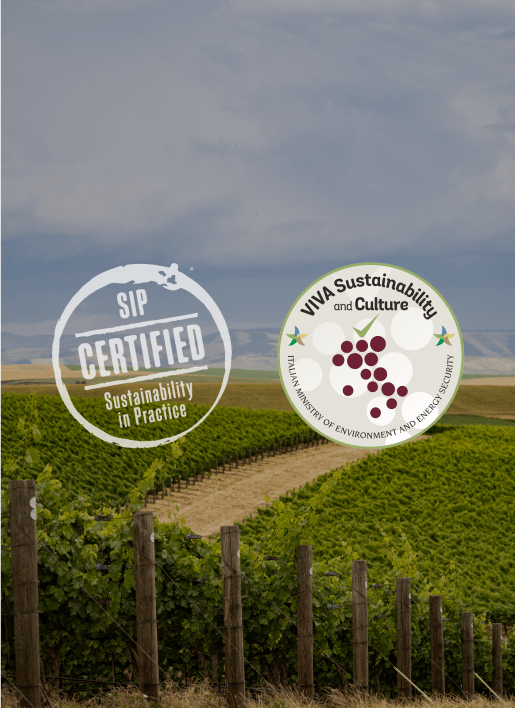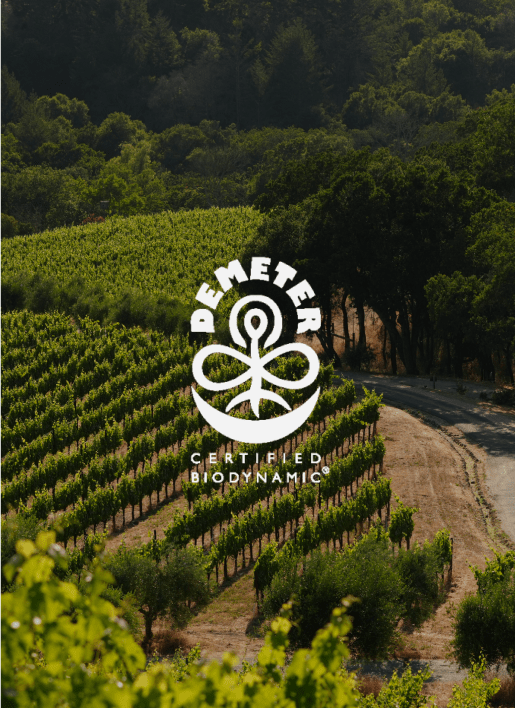People
Harmonizing Nature: Riffing about Sustainability in the Vineyards
April 30, 2024

As we approach warmer weather, I’ve been thinking a lot about sustainability, conservation, and related concepts. For my whole adult life (and even going back to high school), the interplay between human creativity and nature’s bounty has been really important to me in a number of ways. Of course, everyone reading this knows how important sustainability is to a lot of wineries and sommeliers. So, as Sommsation’s Lead Sommelier, I pay a lot of attention to what’s going in the wine world related to sustainability.

Starting in June, Sommsation will be showcasing a handful of our portfolio wineries that have made remarkable progress with sustainability and related values. So stay tuned for that. But first, here’s a bit of background as to how I’ve formed my thoughts on sustainability, particularly within the lens of the world of viticulture.
Prior to becoming a sommelier, I was a Philosophy major—in some ways those two paths are more similar than most people might realize. In college, I especially enjoyed Hannah Arendt’s work, but my love of Albert Camus’ books in high school is ultimately what pushed me to pursue a degree in Philosophy. I joke that at that time, I had no idea that the name ‘Meursault’ would go from primarily representing the protagonist of Camus’ novel The Stranger in my mind to conjuring thoughts of Chardonnays that originate from the commune of Meursault in Côte de Beaune, but I digress.

In the coming months, The Rebel Wine Club by Sommsation will be rolling out a couple fun concepts that are inspired by Camus’ famous essay, The Rebel, so stay tuned for that as well.Beyond Arendt and Camus, I’ve also been a fan of the Grateful Dead since 1999 after hearing the song Ripple off their studio album, American Beauty (1970). Although I discovered the Grateful Dead after Jerry’s passing, it turns out that Jerry Garcia, the Grateful Dead, and their music have had a profound impact on my life. Nowadays, I appreciate that they were not just brilliant musicians and storytellers, but also early advocates for environmental causes. Their efforts, particularly for the preservation of the Amazon rainforest, showcased their commitment to global environmental stewardship.

Garcia spoke about the importance of preserving such vital ecosystems, highlighting that the survival of these areas affects not just local communities, but the global population. In one famous interview, he made the sort-of-funny, sort-of-sad observation “Somebody has to do something [to protect the rainforests]. It’s just incredibly pathetic it has to be [the Grateful Dead].”
Through benefit concerts and supporting organizations like the Rainforest Action Network, the Dead played a pivotal role in raising both awareness and funds for environmental causes… which leads me to another pivotal figure in sustainability, particularly through the lens of farming and winemaking.
Rudolf Steiner and the Waldorf Method

"Nature is the great book of life," Rudolf Steiner once remarked, reflecting his holistic view of the universe. Steiner, the founder of Anthroposophy, introduced the Waldorf education method, which emphasizes imagination in learning and integrates the arts in every subject. This educational approach aligns with his principles of biodynamic agriculture, which considers the farms and vineyards as living systems that thrive on ecological balance and cosmic rhythms.
The Waldorf method teaches respect and understanding of the natural world, including qualities essential for fostering sustainability. From the philosophical underpinnings of Rudolf Steiner's biodynamic farming to the Grateful Dead's activism for the Amazon rainforest, there's a profound connection between the arts, agriculture, and environmental stewardship.
Sustainability and Biodiversity in Wine

Beyond biodynamics, biodiversity is also a popular term in the realm of environmentally-friendly farming, but to be clear, it’s not just a buzzword—it's a critical component of sustainable agriculture. In vineyards, biodiversity involves cultivating a variety of plants, insects, and animals alongside grapevines, which helps to maintain a healthy ecosystem by controlling pests naturally and improving soil quality. This results in more resilient vineyards and higher quality grapes without the heavy use of chemicals. To keep it simple, here are the three main sustainability-focused certifications that wineries around the world can pursue:
Note: Demeter, as some of you will already know, was the Greek goddess of seasonality, fertility, and the earth (and was later identified with the Roman goddess, Ceres). Described by Homer as “she who glories in the harvest,” Demeter is an apt inspiration for a celebration of the biodynamic.
If you’ve read this far and are interested in learning about three wineries that are actually Demeter-certified, then read on just a bit further:
Hawk & Horse Vineyards

Demeter-Certified Biodynamic Vineyard
Biodynamic farming practices enable Hawk and Horse to increase the vitality of their soil, promote the health of the vines, and optimize the overall quality of their fruit using only the cleanest and most natural preparations. They prescribe to the firm belief that great wine is made in the vineyard. Therefore, it is fundamental to farm the land in the very best way possible.
2019 Hawk & Horse Vineyards Cabernet Franc
Full-bodied, youthful, and approachable. The combination of ripe fruit character plus spicy, savory notes make it the perfect companion for your early summer grilling.
DaVero Farms & Winery

Demeter-Certified Biodynamic Vineyard (Hawk Mountain Vineyard + Valladares Vineyard)
DaVero strives to keep their vineyards wild, with a diverse undergrowth that harbors beneficial insects, enriches the soil, and protects the microbiology below. The vineyards are all small, and surrounded by open space and woodland to foster biodiversity, and promote the overall health of the farm. In parallel with the development of the estate farms, DaVero has actively sought out other like-minded growers in the area, with whom they forge long-term relationships that ensure their economic and agricultural sustainability.
2021 Estate Frizzante
This Frizzante, meaning 'lightly sparkling' in Italian, is delightfully bubbly. An ideal pairing for a lovely afternoon aperitivo with friends.
Authentique Wine Cellars

Demeter-Certified Biodynamic Vineyard (Keeler Estate Vineyard)
Authentique’s Keeler Estate Vineyard is farmed using the spiritual-ethical-ecological approach to agriculture known as biodynamics. Biodynamic farmers strive to create a diversified, balanced ecosystem that generates health and fertility within the farm itself. Preparations made from fermented manure, minerals, and herbs are used to restore and harmonize the vital life forces of the farm, as well as enhance the nutrition, quality, and flavor of the fruit being grown. Biodynamic practitioners, like Authentique, recognize and strive to work in cooperation with the subtle influences of the wider cosmos on soil, plant, and animal health.
2020 Barrel Aged Pinot Gris
Owner and winemaker, Nicholas Keeler, knocks it out of the park with this uber limited (74 cases) production wine. This is Pinot Grigio/ Pinot Gris as you've never experienced before. This wine checks every box, showcases the profound skill of the winemaker, and is incredibly drinkable no matter the occasion.


